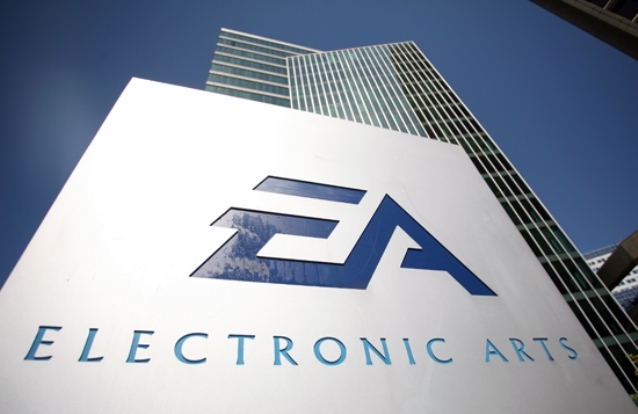Peter Moore says retail and digital will play nice together
It has become commonplace in the video game industry for everyone with a platform for conveying opinions to announce the imminent death of one thing the moment anything that is competitive gains any real measure of popularity. Read the headlines any given week and you’re likely to hear about how a certain platform or company — or any other “thing” imaginable, for that matter — has been placed on the endangered species list by a party that is a position to directly benefit from its eventual extinction.
Nintendo says cheap smartphone games are strip mining the industry dry. Rovio counters that console makers are dead men, er, companies, walking. Some obscure developer of cheap phone games rips the Vita here. A creator of social or browser games says the traditional big-budget game development community that once scorned him is now a crumbling empire there. And round and round it goes. Where it stops, nobody knows. But it’s certainly not at the retail versus digital argument.
That’s why current Electronic Arts President and COO and former Microsoft Interactive Entertainment Business CVP Peter Moore’s words at last week’s Bank of America Merrill Lynch 2012 Global Technology Conference felt somewhat out of the ordinary. Moore was more than happy to boast of EA’s $1.2 billion in digital revenues for fiscal year ending March 2012 that buoyed the company to a record total revenue of $4.2 billion in revenues.
Of course, that still left a lot of room for disc-based sales. As Gamasutra reported, Moore sees the two distribution models playing nice together going forward in ways that will keep the money train rolling for the third-party publisher. Nevertheless, his words are sure to spark controversy as he spoke openly of how the second-largest third-party in the world will continue using AAA disc releases as a means for leveraging DLC and microtransactions.
“Once we get that [disc] installed in the tray of an Xbox or a PS3, we then look at our consumer on an [average revenue per user] basis,” Moore said. “We love what retail does for us. We love its ability to create massive launches and create excitement. GameStop probably sees three million hardcore gamers walk through their doors every day, and that’s a marketing opportunity for us.”
On top of working together, Moore also sees the continued existence of brick and mortar stores as necessary if EA is to reach the largest possible audience. Without getting specific, he mentioned that “a lot” of the industry’s consumers don’t have credit cards. He also believes many of them are afraid of storing card data online thanks to incidents such as the disastrous Anonymous attack on the PlayStation Network. This slice of the audience still wants access to all of the digital goodies, though, which allows the industry to successfully sell physical cards that can be exchanged for digital products.
“A lot of our consumers prefer to go into retail buy those Xbox Live or PlayStation Network cards,” Moore explained, “and retail gets a very strong margin on that. For retail, if they can evolve to be not just a physical media purveyor, but a digital media purveyor, it’ll play a very strong role in our business going forward.”
He also handed out free gasoline for day-one DLC detractors to pour onto their torches. “The other key thing is selling digital content on the day of launch… When we sold Mass Effect 3 back in March, we saw a 40 percent attach rate that first week to DLC at GameStop in the United States,” he said. “Not only are you selling a $60 game…you’re selling $20 DLC, so the sale becomes $80.”
There has been no shortage of outrage from gamers over the advent of DLC, especially that which resides on physical discs must be “unlocked” through purchases. Opponents of this type of content could also just not buy it, but the argument goes that they are then being cheated out of content they believe would have been included free-of-charge as a part of the game proper in eras gone by. Despite the indignant outcry, a large enough contingent of consumers are apparently ponying up for such content to convince EA to keep it coming.
Source: Gamasutra via Destructoid



